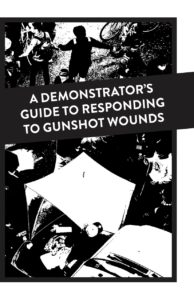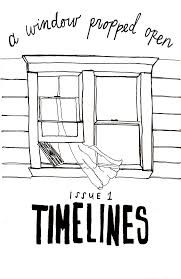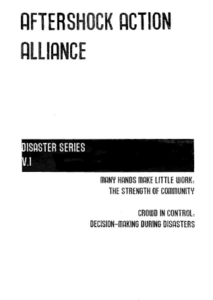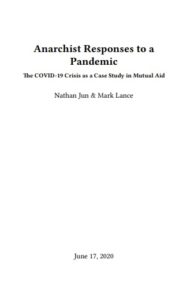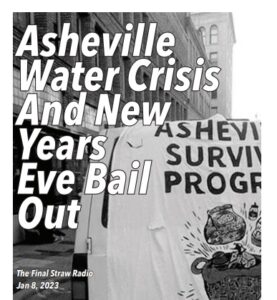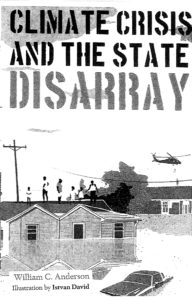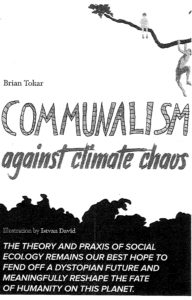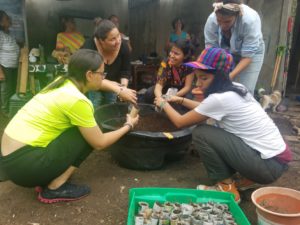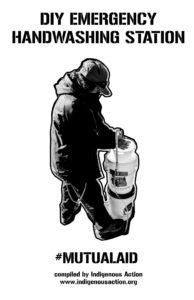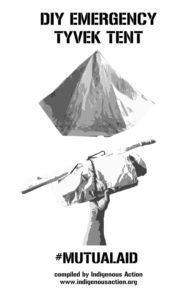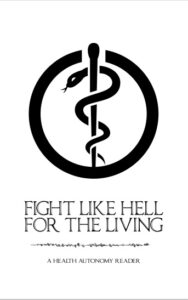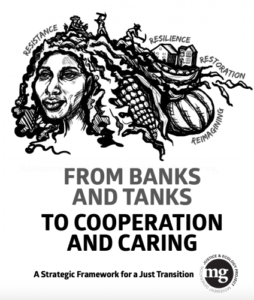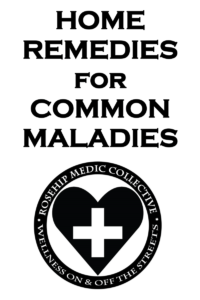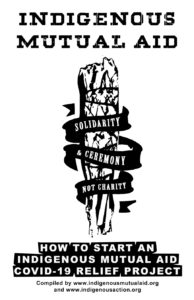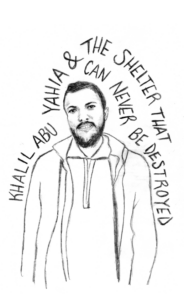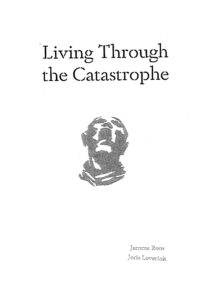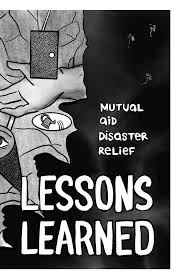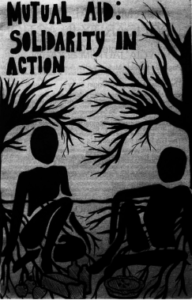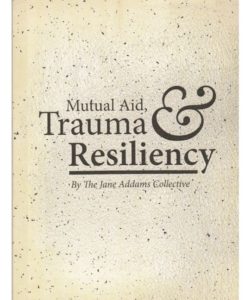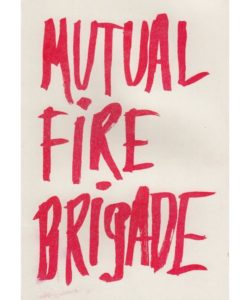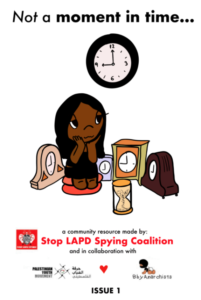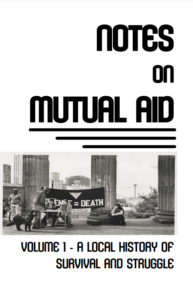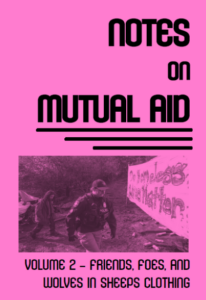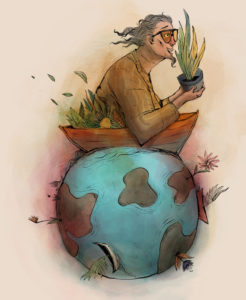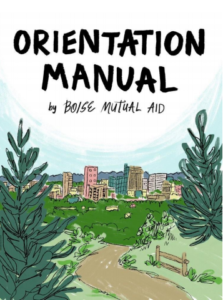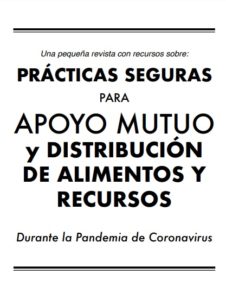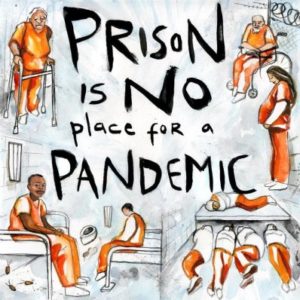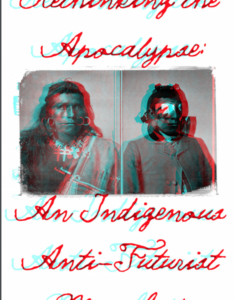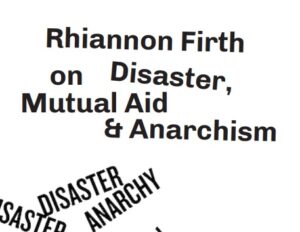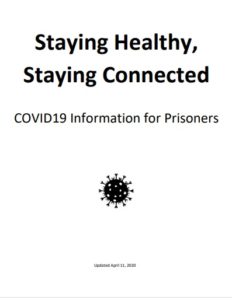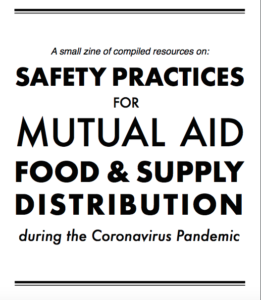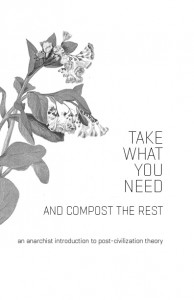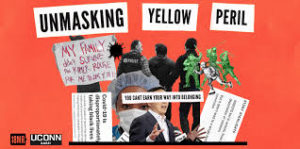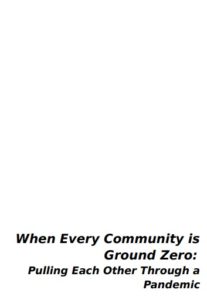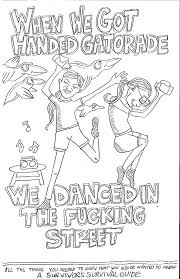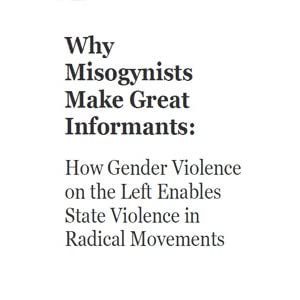-
Crimethinc
Gunshot wounds are becoming more common at demonstrations. This is not to say you should panic—millions of people have participated in demonstrations over the past four months, while only dozens have been shot.
-
Mutual Aid Disaster Relief
On mutual aid and building power while the lights are out.
-
-
West Street Recovery
The recovery work in Houston is far from over, but in the last six months, we've learned a heck of a lot.
-
West Street Recovery
There’s a sign still hanging on the front door of the house on West Street where West Street Recovery (WSR) launched a week of boat rescues from as Hurricane Harvey passed over Houston.
-
Aftershock Action Alliance
Many hands make little work: the strength of community; crowd in control: decision-making during disasters
-
Yessi & N
This zine is pieced together with lots of love and commitment for our collective wellbeing. we hope you are all reminded that in times of crisis, community in many ways have always shown up for one another. our hope is that these tools and whats comes with your creation are shared/distributed with those around you.
-
Rosehip Medics Collective
In this zine, we share the words of these individuals who have
inspired us through their stories, their work and their vision. The
anthology is divided into two sections – the first explores healthcare
workers creating change and finding paths to patient directed care
within the healthcare system, while the second celebrates moments
of challenging oppressive systems, subverting ineffective care, and
building alternative networks of mutual aid and support. -
The Anarchist Library
When central authority fails in socially crucial tasks, mutual aid, solidarity, and grassroots organization frequently arise as people take up slack on the basis of informal networks and civil society organizations. We can learn something important about the possibility of horizontal organization by studying such experiments.
-
The Final Straw
The Final Straw's interview with Elliot of Asheville Survival Program, M of Asheville for Justice and Moira about the water crisis that started on December 24th, the city’s response, how mutual aid stepped up to distribute water and more.
-
Asian American Feminist Collective
With the COVID-19 pandemic neither behind us or solely ahead of us, this zine offers a way to make meaning of the coronavirus crisis through long-standing practices of care that come out of Asian American histories and politics. We bring together first-hand accounts and analyses from our communities, including health and service workers and caregivers on the frontlines, students, people living with chronic illness, journalists, and organizers.
-
Libcom.org & the Edmonton Small Press Association
This piece of writing comes out of a series of discussions which occurred on the forums of libcom.org. It was repeatedly raised that depression, mental illness, and emotional stress are very common amongst libertarian political activists. Furthermore, suffering from mental illness as someone who is politically active often comes with its own set of complications. Sometimes the wider anarchist/activist community is supportive and helpful. Other times, we can feel just as alienated amongst fellow anarchists as we do from the rest of capitalist society.
-
Roar Magazine and William C. Anderson
Could the revolutionary intercommunalism of the Black Panthers provide an answer to the state's purposeful neglect of vulnerable communities during disasters?
-
Roar Magazine and Brian Tokar
The theory and praxis of social ecology remains our best hope to fend off a dystopian future and meaningfully reshape the fate of humanity on this planet.
-
Ricchi w/ Mutual Aid Disaster Relief
“It was like an atomic bomb went off,” says a local Boricua (as people born in Puerto Rico are often called) about the view of the mountains the day after Maria passed. “Every branch and every tree was torn apart and broken, and scattered everywhere. Every green area was gray and brown.”
-
Indigenous Action
We offer this ‘zine in the midst of the COVID-19 pandemic in the Spring of 2020. Our unsheltered relatives cannot simply “stay home if they are sick” and “constantly wash their hands” as instructed by callous politicians who, predictably, had no plans to ensure the wellbeing of our relatives.
-
Indigenous Action
This is a quick set-up shelter that is weather proof and extremely lightweight (about 1lb 5 ounces without pole & stakes). While there are several designs for Tyvek shelters, we found most of them unclear and too complicated for our needs.
-
Woodbine
Name the materials necessary for the common good, or how about just your top three. Health is an arguable front-runner, no? It should be way up there, alongside things like freedom and the environment.
-
Movement Generation
We offer this booklet as a humble point of departure for folks interested in
building a collective vision and strategy framework for Ecological Justice
that does not separate humans from nature or social equity from ecological
integrity -
Rosehip Medic Collective
This zine provides a basic introduction to herbalism alongside a collection of home remedies for common health problems. The information is organized into broad categories based on body parts (head, abdomen, etc) and then from there conditions and symptoms. It’s easy to use and a good introduction to DIY healthcare.
-
Indigenous Mutual Aid
We decided to create this guide as we found that most resources currently available for COVID-19 Mutual Aid organizing were insufficient compared to discussions with other Mutual Aid projects and our own experiences working with two Indigenous Mutual Aid groups (Kinłani Mutual Aid & Navajo and Hopi Families COVID-19 Relief). Aside from this guide, we highly recommend that you talk directly with other Mutual Aid organizers to get a sense of what organizing frameworks may work best in your area.
-
Mutual Aid Disaster Relief
Kahlil Abu Yahia writes about climate justice and mutual aid in Gaza. His anti-colonial friends and comrades in Israel write memorials keeping Kahlil's memory and vision alive.
-
Roar Magazine
The threat of catastrophic man-made climate change can no longer be considered a distant prospect. It is already here.
-
Mutual Aid Disaster Relief
We share these lessons, knowing that there are many like us: individuals, collectives, organizations, networks, and movements that lovingly, boldly do the work of revolution, striving to ground that work in an ethic of care and mutual aid. Disasters may soon become the new normal. There will be many times on the paths ahead of us when there aren’t easy answers. But we want to share with you what we gleaned from our time doing this work, in hopes that you can build off of the successes and avoid the mistakes of previous iterations of this type of organizing.
-
Boise Mutual Aid
Do you ever spend time thinking about where the food you eat, or the clothes you wear come from? What about the labor and materials that went into building your house or your car? Left to fend for ourselves without the comforts of community, few among us would survive a week. None of us would be able to provide the food, medicine, clothing, shelter, and everything else our lives depend on. We need each other.
-
The Jane Addams Collective
One cannot expect a rebellion, any rebellion, against any authority, to come without hardship relative to one’s own already desperate condition. Many have died and sacrificed for the struggles for liberation we hold in our hearts, and those who bear witness also bear scars.
-
Cindy Milstein
In mid-November 2018, smoke from the hellfires of so-called California drifted to my home base, so called Michigan, as humans and nonhumans on the West Coast struggled to breath, struggled not to die from the latest “historic” new normal of capital/state-fueled climate catastrophe.
-
-
Mutual Aid Notes
The present wave of mutual aid work is at a crossroads. A solid foundation for future work has been established, but it is vital that groups avoid stagnant patterns, non-profit and electoral co-option, or settling into a wholly reactive pattern of responding only when attacks intensify.
-
Mutual Aid Notes
This zine is the second in a series that explores and critiques the budding movement of mutual aid groups around the Pacific Northwest. Our own experiences, observations, and
research are synthesized with accounts gained from networking with other groups near and far. The first zine explored mutual aid’s history and theory, while this zine will dive deeper into the various enemies and allies mutual aid crews may encounter. -
Roar Magazine and April Humble
The rules of border control will need to be rewritten to make migration an option for those fleeing the consequences of climate destabilization.
-
Roar Magazine and Kevin Buckland
Our response to the climate crisis has been to rearrange deckchairs on the Titanic — but whatever we do, it isn’t working. It’s time to try something new.
-
Boise Mutual Aid
Our efforts are only possible through widespread community participation and support. Thank you for getting more involved! This manual will give you an idea of different ways to get plugged in to our weekly food and survival gear distribution. We aspire to expand and create additional ways mutual aid can be practiced in our community. If you have any ideas on how to do that, take the lead knowing that our community will support you!
-
Mutual Aid Disaster Relief
COVID-19/Coronavirus es un virus contagioso que puede ser diseminado
rápidamente por personas que no saben si son portadoras. La infección puede amenazar la vida, especialmente en personas ancianas o inmunodeprimidas. -
-
The New York Review & Molly Crabapple
Natural disasters have a way of clarifying things. They sweep away once-sturdy delusions, to reveal old treasures and scars.
-
Indigenous Action
Why can we imagine the ending of the world, yet not the ending of colonialism? We live the future of a past that is not our own. It is a history of utopian fantasies and apocalyptic idealization. It is a pathogenic global social order of imagined futures, built upon genocide, enslavement, ecocide, and total ruination.
-
The Final Straw
An interview from The Final Straw with Rhiannon Firth on disaster, mutual aid, and anarchism.
-
The Nib, Vulpes, and Mutual Aid Disaster Relief
In a time of climate catastrophe, living in New Orleans means being constantly aware of our tenuous relationship with the environment.
-
Blue Ridge ABC
Dear Friend, we hope this message reaches you in good health and spirits. We are writing to you from a changed world—one most of us barely recognize. In a few short weeks, our daily routines of work, school, childcare, recreation, and simple things like shopping for basic necessities have been radically unmade and reformed in the shape of a new normal.
-
Beyond Prisons
The carceral system is an act of warfare against criminalized people--disproportionately Black, indigenous, POC, migrant, disabled, and poor. In a moment of massive health crisis, we have an opportunity to reconsider the interests of incarcerated people, who are now among those at the highest risk for mistreatment and medical neglect.
-
Mutual Aid Disaster Relief
This zine is a quick compilation of the following resources accessible online to support mutual aid-based projects providing services for their communities amid the COVID-19 pandemic:
-
Strangers In A Tangled Wilderness
Post-civilization theory posits that while civilization is, at its root, unsustainable and undesirable, the way we must move is forward, not backwards. This zine collects together six essays written by Margaret Killjoy that first appeared in the magazine Alan Moore’s Dodgem Logic between 2010-2011.
-
Mutual Aid Disaster Relief
Sometimes, it’s only through disasters that we unearth a power within that
can’t be measured or defined. Sometimes darkness is our candle. Sometimes our wounds illuminate our path. And sometimes healing happens, in roundabout ways, all around and deep inside us. -
Rosehip Medic Collective
While traveling, we are exposed to all the illnesses and problems that trouble us when residing in our own communities, but also by everyone else’s.
-
18MR and UCONN AAASI
A free colorful zine full of archival images, forgotten histories, and critical analysis. Unmasking Yellow Peril is a collaboration between 18 Million Rising and the Asian and Asian American Studies Institute at the University of Connecticut. With this project, we seek to ground ourselves in the long history of Yellow Peril, uncover its main forms, and resist it in the time of COVID-19.
-
Mutual Aid Disaster Relief
Radical solidarity through Covid-19 Community mobilizations for mutual aid and medical solidarity have formed in as many spaces as the new coronavirus (Covid-19) has spread.
-
Mutual Aid Disaster Relief
All the things that you needed to know that you never wanted to know. A survivor's survival guide.
-
Feminist Anarchist Border Opposition
This zine looks at how unchecked misogyny in political movements, groups, whatever you want to call it creates an environment that is ripe for the recruitment and deployment of informants. Misogynist behavior is disruptive and pushes women and queer folks out of spaces, while constantly dominating the agenda.
Zines2024-04-29T18:17:45-04:00
